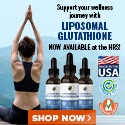Certain skin creams found to have mercury levels hundreds of thousands times higher than FDA-approved limits
Thursday, October 09, 2014 by: Antonia
Tags: mercury, skin creams, safe limits

- Newly released JFK files reveal Pentagon's role in creating Lyme disease and covid in the same lab
- Here are TEN all-natural ways to protect your garden without using harmful chemicals
- Ginseng's hidden anti-aging power: How compound K is rewriting the rules of skincare
- “Endgame: The Hidden Agenda 21” unveils a world of conspiracy and control
- L.A.'s rebuilding nightmare: Only 4 permits issued after fire destroys 6,000 homes
- Scientists demand FDA withdraw mRNA COVID vaccines amid contamination and gene therapy concerns
- Senate Democrats deny censorship industrial complex existed, defend government's role in silencing dissent
- Dr. Suzanne Humphries makes bombshell appearance on Joe Rogan podcast, exposing vaccine industry deception back to POLIOMYELITIS
- “The shame of Minnesota”: Somali immigrants behind $250 million child nutrition fraud in largest COVID-era scam
- Former Congresswoman exposes CCP's deep infiltration of California through universities, ports, and fentanyl
- PROCESSED TABLE SALT in foods found to fuel depression
- Despite surge in MMR vaccination in Texas, measles outbreaks continue: Is VACCINE SHEDDING fueling the spread?
- “Independent” anti-Russia outlet MEDUZA faces COLLAPSE as US funding dries up
- Chewing gum's dirty secret: How your daily habit could be flooding your body with microplastics
- BPA: The hidden hormone disruptor sabotaging your health - and how to fight back
- Embracing the wild: A deep dive into Jim Cobb’s “Backwoods Survival Guide”
- The hidden battle in your glass: How A1 and A2 milk could shape your health
- Catastrophic 7.7 earthquake devastates Myanmar and Thailand; death toll could reach 100,000
- Newly released JFK files reveal Pentagon's role in creating Lyme disease and covid in the same lab
- Analysis: The coming economic collapse, a mass uprising and Trump's three secret weapons to halt the growing revolt
- Festive flavors: The sweet history, nutritional profile and health benefits of pecan pie
- Elon Musk: Aliens could be here on Earth RIGHT NOW
- Trump reverses course on Gaza plan, says “nobody is expelling Palestinians”
- Big Pharma's $8 Billion bribery scheme exposed: how doctors are pushed to prescribe junk science, not heal
- Boys are back in town: Trump’s patriotic alpha crew takes the wheel while toxic females ride in the backseat
- Reclaim your health: How midlife exercise reverses years of inactivity
- A lack of integrity in Academia: Harvard professor found GUILTY of fraudulent research to promote CRT theory
- Survival 101: Effective EMF blocking techniques
- EPA advisor admits the agency is funneling billions to climate groups ahead of Trump’s return to White House
- Dr. Mike Yeadon releases 15-minute testimony - WATCH - about genocidal intent of COVID “vaccines”
- 5 Simple steps to boost your brainpower: How to strengthen executive function in a distracted world
- Florida takes a stand: DeSantis proposes permanent ban on mRNA vaccine mandates
- Sugarcane extract superior to cholesterol-lowering drugs?
- Mike Adams Sermon 66: God will DESTROY ISRAEL for its wickedness
- Pilots report mysterious lights 'moving at extreme speeds' across Oregon skies
- Space war brewing? Russia threatens to destroy Starlink satellites
- EPA advisor admits the agency is funneling billions to climate groups ahead of Trump’s return to White House
- California's social media censorship law struck down: A victory for free speech or a threat to online safety?
- The Health Ranger releases “Vaccine Zombie” song and music video, using AI-animated zombies for the music video
- Dr. Mike Yeadon releases 15-minute testimony - WATCH - about genocidal intent of COVID “vaccines”
- The pandemic as a tool for INDOCTRINATION: Understanding “The Indoctrinated Brain” by Dr. Michael Nehls
- Newly released JFK files reveal Pentagon's role in creating Lyme disease and covid in the same lab
- Florida takes a stand: DeSantis proposes permanent ban on mRNA vaccine mandates
- Mike Adams releases country western hit single: Goin’ Back in Time is Comin’ Home
- Mike Adams releases music poetry sensation: A Child of God
- “Why we influenced the 2020 elections”: Facebook files reveal the coordinated effort to bury the Hunter Biden laptop story
- Unpacking the Lies That We’ve Been Fed – new song and music video released by Mike Adams, the Health Ranger
- RFK Jr. clears key hurdle: Sen. Susan Collins backs controversial HHS nominee, signaling a new era for health policy
- Mike Adams releases new song and music video: Nothing More Disgusting Than a Globalist
- Michigan sheriff announces criminal investigation into 2020 election crimes, Dominion Voting Systems
- Israeli soldiers accused of even more torture and abuse in the West Bank
- Migrants are taking advantage of recent hurricanes to scam residents and loot their homes
- House Intelligence Committee calls for the ARREST and PROSECUTION of Dr. Anthony Fauci
- Rep. Nancy Mace introduces bill to ban biological males from female facilities on federal property
- Red Cross issues warning to stop blood plasma donations from vaccinated people
- Scientists confirm: GENIUS brain function can be spontaneously unleashed in humans without any apparent cause
- EPA advisor admits the agency is funneling billions to climate groups ahead of Trump’s return to White House
- HYSSOP: What research reveals about the health benefits of this ancient holy herb
- Two containers with completed ballots fall out of truck in Florida
- Fully vaccinated about to see “tsunami” of illness and death, warns virologist
- Global leaders unite to clamp down on “misinformation” with UN-backed Cascais Declaration
- BREAKING: 2025 NDAA authorizes mandatory military draft of WOMEN across America… as Pentagon pursues global NUCLEAR war with both Russia and China at the same time
- Michael Yon warns of a ZIONIST TAKEOVER in Trump’s second administration
- BOMBSHELL: DNA testing kits are a SCAM to develop ethnic-specific bioweapons
- Ozempic and Wegovy weight loss drugs are injectable LIZARD VENOM PEPTIDES that may unleash a devastating wave of organ failure… side effects align with symptoms of SNAKE BITES
- Israeli soldiers accused of even more torture and abuse in the West Bank
- These 13 countries just signed an agreement to engineer a global FAMINE by destroying food supply
- NASA admits that climate change occurs because of changes in Earth’s solar orbit, and NOT because of SUVs and fossil fuels
- RFK Jr. clears key hurdle: Sen. Susan Collins backs controversial HHS nominee, signaling a new era for health policy
- Sermon 30: How Jesus reveals Caesar’s FAKE CURRENCY and FALSE AUTHORITY
- Coriander seeds: Ancient medicine backed by modern science
- Arizona officials claim Maricopa County needs 10-13 days to tabulate results of the election
"The limits for mercury in face creams is about one part per million," he says of the FDA-accepted levels in the United States. (1) However, Dr. Vrdoljak discovered that some skin creams in the United States far exceed this number, finding many to have mercury levels that were upwards of 210,000 parts per million. (2)
Skin creams, namely skin-lightening ones designed to combat the signs of aging and reduce wrinkles, freckles and age spots, can have serious health consequences. Dr. Vrdoljak says that products containing these higher levels of mercury wreak havoc on health and can even lead to death, since mercury is linked to causing neurological problems and kidney disease. (1)
Furthermore, they are not entirely effective; he says that "these things come back," referring to skin conditions treated with these iffy, mercury-laden products.
Third-party sources likely culprit in supply of dangerous face creams
He cites use of products from "third-party sources," such as bringing products back from overseas or purchasing creams from questionable, non-dermatologist sources, as a reason that is likely behind the higher levels of some skin creams found in the United States. (1)In Northern California, a 39-year old woman who was using an unlabeled mercury-containing face cream brought into the United States from Mexico by a relative had over 100 times the average amount of mercury in her urine, coupled with mercury-poisoning symptoms. (3) The woman had been using the product for three years.
Dr. Vrdoljak also says that differences between ethnic markets and ever-changing standards about beauty come into play and may explain why more people are inclined to use products from outside of the United States. (1)
How to avoid harmful skin creams
The FDA warns against such use, urging people to be aware of the difference between how a product may be promoted and what it's legally approved to do for an individual, suggesting that people take notice of and avoid package wording such as "mercurous chloride," "mercury," "mercuric," "calomel" and "mercurio." (3)The FDA also suggests refraining from online purchase of such products, since many are made overseas and then sold in the United States illegally.
Mercury is one of the most toxic elements which Dr. Vrdoljak says can be absorbed into the body via application on the skin, as well as transferred by touch. (1) Rubbing the face and then rubbing eyes or eating foods that have been touched by contaminated skin are just a couple of examples of how easy it is for it to spread, and it can even be passed to other family members who don't use the product. (1, 3)
Sources:
(1) http://www.ustream.tv
(2) http://www.treehugger.com
(3) http://www.fda.gov
http://science.naturalnews.com
About the author:
A science enthusiast with a keen interest in health nutrition, Antonia has been intensely researching various dieting routines for several years now, weighing their highs and their lows, to bring readers the most interesting info and news in the field. While she is very excited about a high raw diet, she likes to keep a fair and balanced approach towards non-raw methods of food preparation as well. >>> Click here to see more by Antonia
Mercury at FETCH.news
Get independent news alerts on natural cures, food lab tests, cannabis medicine, science, robotics, drones, privacy and more.
Take Action: Support Natural News by linking to this article from your website
Permalink to this article:
Embed article link: (copy HTML code below):
Reprinting this article:
Non-commercial use OK, cite NaturalNews.com with clickable link.
Follow Natural News on Facebook, Twitter, Google Plus, and Pinterest
Science News & Studies
Medicine News and Information
Food News & Studies
Health News & Studies
Herbs News & Information
Pollution News & Studies
Cancer News & Studies
Climate News & Studies
Survival News & Information
Gear News & Information
News covering technology, stocks, hackers, and more



"Big Tech and mainstream media are constantly trying to silence the independent voices that dare to bring you the truth about toxic food ingredients, dangerous medications and the failed, fraudulent science of the profit-driven medical establishment.
Email is one of the best ways to make sure you stay informed, without the censorship of the tech giants (Google, Apple, Facebook, Twitter, YouTube, etc.). Stay informed and you'll even likely learn information that may help save your own life."
–The Health Ranger, Mike Adams













































